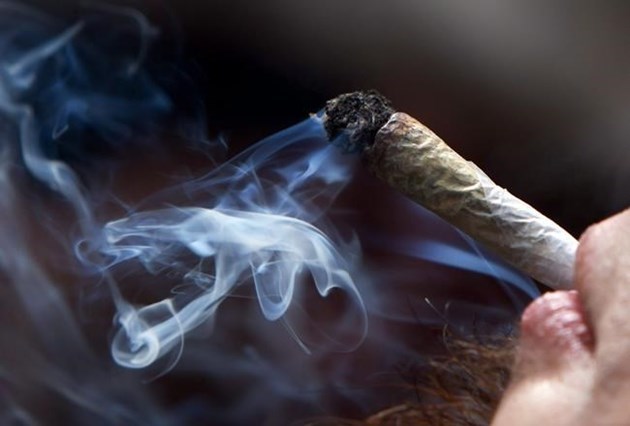Sault Police Chief Hugh Stevenson says when cannabis becomes legal for recreational use Wednesday, Oct. 17, the local police service will be using the federal government-recommended Drager DrugTest 5000 drug testing device in roadside checks of drivers suspected of being high.
Testing will involve saliva screening to search for THC, the main impairment-causing agent in cannabis.
“The Sault Police will go with what’s recommended by the federal government and the Justice department, and that’s in keeping with the regulation changes to the Criminal Code as well,” Stevenson told SooToday Friday.
The federal government had stated individual police services would have the choice of which type of cannabis testing device to use.
Stevenson said Sault Police will use the Drager DrugTest 5000, though some legal critics have questioned the device’s reliability, stating some studies have shown the tool has produced false positives and false negatives in testing of individuals and is unsuitable for cold Canadian weather.
“Whenever we start something new there are always critics of its efficacy, reliability and validity, but we can only take what we’re given by the federal government. We’ll put that evidence (from cannabis testing) before the courts, that’s our job as police officers in this community and we’ll let the courts decide whether or not it’s reliable and credible,” Stevenson said.
“From what I’ve been told by the authorities, it is a credible tool we will use and it will keep the community safe, but again, that instrument, like all instruments in the past, have always been tested in the courts.”
The Sault Police Service is still waiting for its supply of Drager DrugTest 5000 devices to be delivered.
Stevenson did not provide a specific number when asked how many of the devices Sault Police will receive, but stated “we’ll have an appropriate number of devices to deal with the demand. The number will certainly meet the demands of this community.”
Critics have also said the roadside cannabis tests are time consuming.
Police officers will need up to four minutes to orally swab a driver, also taking up to 10 minutes to test the sample.
Because the process also requires no food or drink to be in the driver’s mouth for 10 minutes before taking the test, it could take up to 30 minutes for police to perform a roadside cannabis test.
“All investigations take time, whether it’s alcohol or drugs, if you look at domestic assault investigations, they’ve probably doubled in the amount of time over a 10-year period that it takes for us to do, but that’s all built in to our budget and staffing and resources to take on the demand of (testing people) impaired by drugs,” Stevenson said.
“At the end of the day, I don’t think the amount of time that it takes to test for drug impairment will change that much from what we’re already doing in terms of behavioural analysis of an individual and putting that evidence before the court.”
“It may be more time, it may be a different allotment of time or require different staff to do it, but we’ll meet that demand and I have full confidence in this organization’s ability to meet the demand,” Stevenson said.
“We have a number of officers trained on drug recognition and we’ll continue to pursue that. It is a very expensive industry in terms of training, however we will continue to make this community safe and we will make sure our current complement meets the demands of drug testing now and in the future. We’ll have enough trained officers to meet the demand.”
As the legalization date draws near, various workplaces have outlined recreational cannabis use for employees.
“I am not aware of any Sault Police employee that has engaged in illegal use of marijuana,” Stevenson said.
“My senior management team have been working on it (a recreational cannabis use policy for Sault Police officers and civilians) for a good two months. We have researched the Department of National Defence and Ontario Association of Chiefs of Police approach to it, we’ve looked at other large police agencies in the province, and we believe that a 28-day prohibition of marijuana usage prior to any active duty that requires use of force and decision making will be the rule.”
“Secondly, if you’re in a non-frontline capacity in terms of use of force, it’ll be a 24-hour rule. We made it simple. That policy will be put in place prior to Oct. 17,” Stevenson said.
